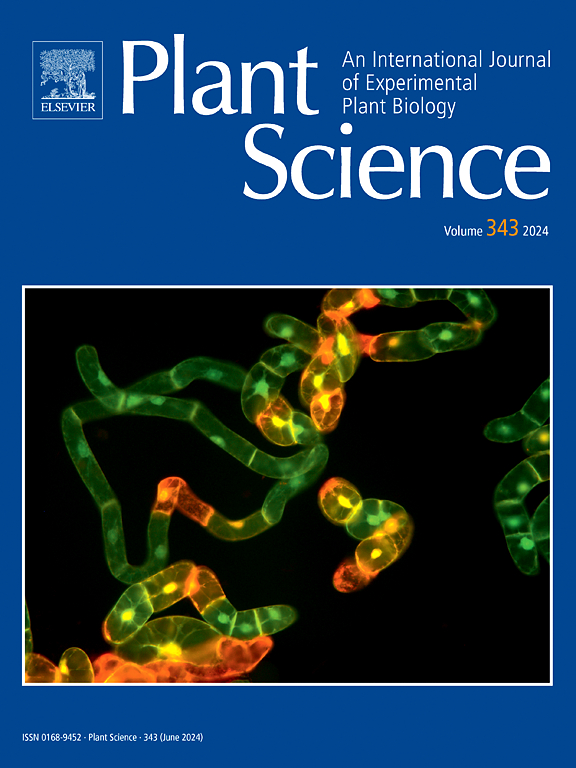The MYB transcription factor MYB48 negatively regulates the resistance to Magnaporthe oryzae by directly enhancing the transcription of HSP71.1 in rice
IF 4.1
2区 生物学
Q2 BIOCHEMISTRY & MOLECULAR BIOLOGY
引用次数: 0
Abstract
MYB transcription factors (TFs) play a critical role in plant immunity; however, their involvement in chaperone-mediated defense mechanisms remains unclear. Here, we demonstrated that MYB48 negatively regulates rice blast resistance by directly activating the heat shock protein gene HSP71.1. CRISPR/Cas9-generated MYB48 knockout lines exhibited enhanced resistance, with reduced lesion numbers and sizes, while overexpression lines displayed increased susceptibility. Nuclear-localized MYB48 directly binds to the HSP71.1 promoter to activate its transcription. Furthermore, knockout of HSP71.1 enhanced blast resistance. Notably, MYB48 knockout did not compromise agronomic traits, highlighting its potential for breeding applications. This study uncovers a novel MYB48-HSP71.1 regulatory module, linking MYB TFs to chaperone-mediated immunity, and provides dual targets for engineering blast-resistant rice.
MYB转录因子MYB48通过直接增强HSP71.1在水稻中的转录,负向调控水稻对Magnaporthe oryzae的抗性
MYB转录因子(TFs)在植物免疫中起关键作用;然而,它们在伴侣介导的防御机制中的作用尚不清楚。在这里,我们证明MYB48通过直接激活热休克蛋白基因HSP71.1负向调控水稻稻瘟病抗性。CRISPR/ cas9产生的MYB48敲除系表现出增强的抗性,病变数量和大小减少,而过表达系表现出增加的易感性。核定位的MYB48直接结合到HSP71.1启动子上激活其转录。此外,敲除HSP71.1增强了抗冲击性。值得注意的是,MYB48基因敲除不会影响农艺性状,这突出了其育种应用的潜力。本研究发现了一个新的MYB48-HSP71.1调控模块,将MYB TFs与伴侣介导的免疫联系起来,并为工程水稻抗稻瘟病提供了双靶点。
本文章由计算机程序翻译,如有差异,请以英文原文为准。
求助全文
约1分钟内获得全文
求助全文
来源期刊

Plant Science
生物-生化与分子生物学
CiteScore
9.10
自引率
1.90%
发文量
322
审稿时长
33 days
期刊介绍:
Plant Science will publish in the minimum of time, research manuscripts as well as commissioned reviews and commentaries recommended by its referees in all areas of experimental plant biology with emphasis in the broad areas of genomics, proteomics, biochemistry (including enzymology), physiology, cell biology, development, genetics, functional plant breeding, systems biology and the interaction of plants with the environment.
Manuscripts for full consideration should be written concisely and essentially as a final report. The main criterion for publication is that the manuscript must contain original and significant insights that lead to a better understanding of fundamental plant biology. Papers centering on plant cell culture should be of interest to a wide audience and methods employed result in a substantial improvement over existing established techniques and approaches. Methods papers are welcome only when the technique(s) described is novel or provides a major advancement of established protocols.
 求助内容:
求助内容: 应助结果提醒方式:
应助结果提醒方式:


